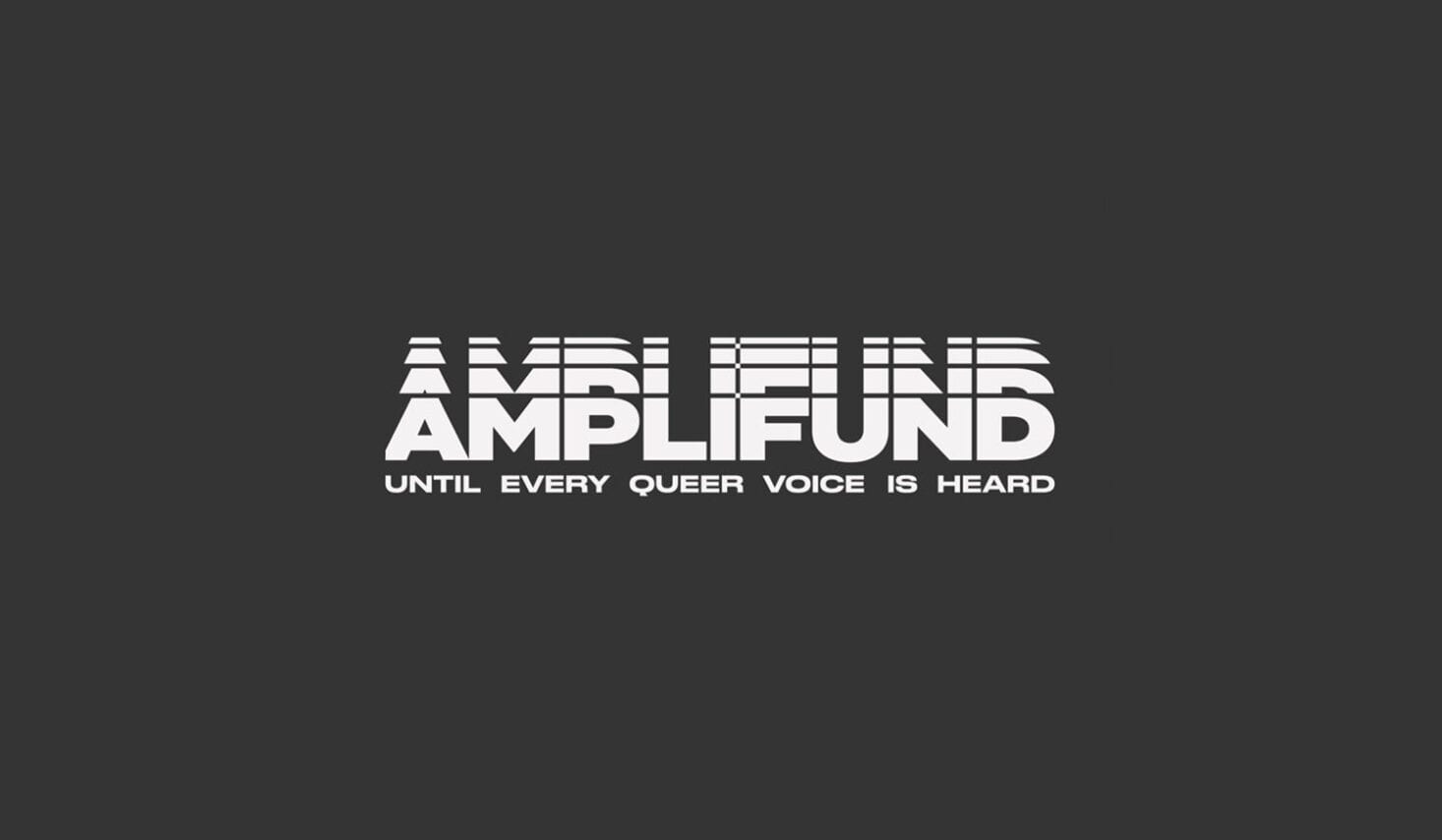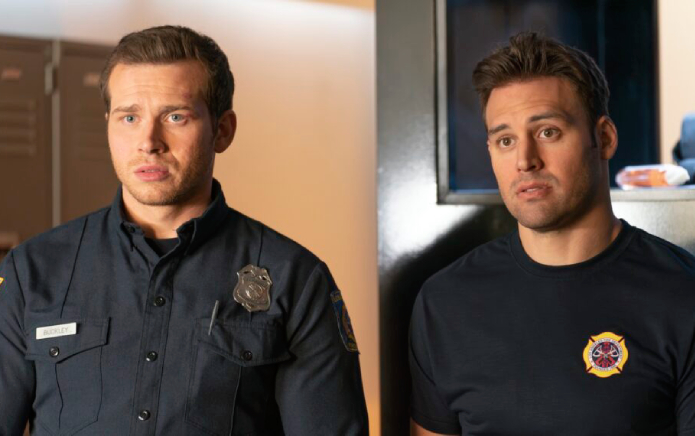
It’s been just over a year since GAY TIMES launched Amplifund. The charity partnership was founded with LGBTQ+ rights charity, GiveOut, with the core aim to support and fund activist and media-based LGBTQ+ organisations in more challenging global environments. This year, our campaign was inspired by feedback from our partners on how communications from charitable campaigns from the global north can so often be patronising or inaccurate.
The stories we are sharing centre around three phrases, ‘it can happen,’ ‘it does happen,’ and ‘it will happen,’ to challenge how we perceive queer livelihoods away from our home environments.
Below are some first-hand accounts from LGBTQ+ people living in countries where their human rights are still not recognised. They give insight to the daily challenges and struggles of queer people in those regions, but also their defiance and commitment to living authentically as themselves.
We do not have the opportunity to express either one of our identities.
Sara, Basra (Iraq)
I met my girlfriend two years ago on a dating app. Being a woman and a lesbian in a city like Basra is very difficult. We do not have the opportunity to express either one of our identities. Because of that, I never thought I would ever meet someone who will know about both of my identities, accept them, and even love me because of them. I never thought that I would ever be able to express my feelings as a woman, as a lesbian without fearing for my life and without facing any consequences. Being in a relationship with my girlfriend is the best thing that has happened to me. She makes me feel safe and loved. Two things even my mother did not provide me with. My relationship with my girlfriend pulls me away from the negativity and fear. When we are together, I am lost in our time together. Even though we sometimes go on long walks together, most of our time is either spent in my bedroom or hers. It is not acceptable for girls my age to go out a lot in Basra. My family, like many others, are traditional and more strict with girls. Our families think we are best friends, so they are okay with us spending a lot of time visiting each other. Despite all the love I have for my girlfriend, and the love I feel from her, we are always afraid of being caught. Every time I kiss her in my bedroom, half of my attention is on my bedroom door. Fearing that one day one of my siblings or parents would walk in on us! Sometimes I get carried away by these thoughts and think about what might happen if that ever occurs. Will they hit me? Will they insult me? Will they kill me? Sometimes these questions make me cry as I do not understand why something beautiful like the feelings my girlfriend and I have for each other are considered as a great sin in my society. But at the end, I focus more on what I have. I do not care where I am when I am with her. As long as I am with her. As long as we have a place where we can be ourselves, hold hands, watch a movie, and talk about poetry, love, and music. Even though I know my life is very difficult and I could face all sorts of punishments at any given moment, I am thankful for what I have. I know I am one of the lucky ones who found love and has someone who will always be there for her. Because if I did not have her in my life, I do not know what I would have done…
We have no control over who we fall in love with.
Dalia, Iraq
It is funny how people think that bisexual people can freely choose who they fall for. They can choose to fall in love with the opposite sex. Straight people think we choose to be gay, gay people think we do not face the same discrimination because we can choose to fall in love with someone from the opposite sex. But in reality, we have no control over who we fall in love with. Just like everyone else. I know this because even though I have found many men attractive, my heart only sees one person – the girl that I met during my college year more than ten years ago. I met her during the third semester. We had two classes together. We started talking because of our assignments, and gradually became friends. We spent more time together every day. My attraction for her grew stronger, but I could never do anything about it. We lived in Samara, a very conservative city. The idea of anything outside of the norm is not acceptable. So something like being bisexual will actually become life threatening. We stayed friends, and lost touch shortly after graduating and I have not talked to her for 11 years. Four years ago, my family moved to another neighborhood. Two weeks after we settled, I ran into her in the grocery store. My heart dropped. I could not believe that I ran into her! I discovered that they are our neighbours now. We started hanging out again. We became even closer friends than we were before. We started going out together, going shopping, and having girls’ nights. One day, we went to Al Malwiya together. We were walking around, talking about our lives and aspirations, and in a quiet moment we held hands. We walked for hours and told each other that we are attracted to each other. I told her how I have thought about her a lot. Since then, we have been dating. Every day that I am not with her, I am thinking about the time when I will see her next. She is the love of my life.
Life as a Black openly trans woman in Jamaica is not for the faint of heart.
Ashley, Jamaica
The woman I am today is resilient, inspiring, altruistic and empathetic. She is a fashion enthusiast and a woman knowledgeable beyond her years by way of experience. Life as a Black openly trans woman in Jamaica is not for the faint of heart. It requires the right mindset and the right group of people around you for support whenever and wherever it’s needed. I’m very blessed to be on a journey of constant growth, because the opportunities are scarce and you have to make the most out of every little opportunity that presents itself. Jamaican society looks down on trans people as sex symbols and mentally and morally confused people, but each day that I exist in my skin and take up space is a political act against such beliefs, which I treasure dearly along with my health, happiness and God.
The most difficult part was learning to accept myself for who I am.
Roxana, Mexico
Friendly, sweet and loving are the words I’d use to describe myself. I work in the local fashion industry and enjoy socialising and going out. One of my greatest passions is dance, as I am a trained ballet dancer, which I’ve practiced ever since I was younger. My journey has been a long one and the most difficult part was learning to accept myself for who I am without caring what the naysayers may have to say. We live in society that judges books by their cover, and growing up in Mexico makes it even harder. My gender discovery came at an early age but I suppressed it out of fear. I really wish we could have more visible trans activists around here but there’s still a lot of ignorance and judgement towards trans women. There’s still a whole lot of work to be done, but through all the difficulties I often manage to find joy and solace in the fact that I am a free spirited person who is able to live in her truth.
Love and happiness are the main aspects that are missing in our lives.
Mamikon, Armenia
I feel more confident to call myself a happiness defender because love and happiness are the main aspects that are missing in our lives. I was born and raised in the most conservative city in Armenia, called Gyumri. It is hard to be gay here, but I had no other option than to be myself and live my life without lies. I came out to my parents when I was 18 years old. They did everything not to hurt me, but they got depressed themselves and wanted to find a solution. My parents found an opportunity for me to go to the USA and to build my life there. But after living there for several months I realized that I had done nothing to make changes in my country and so I decided to return.
Since 2002 I found the courage to start LGBTQ+ activism in Armenia, and it became more visible each year. I usually do not face aggressive reactions regarding my own sexuality, but rather my work for the LGBTQ+ community such as hate speech and death threats. Over the years I have found my place in the civil society and human rights fields, achieving recognition by other human rights defenders. However, I feel more confident to call myself a happiness defender because love and happiness are the main aspects that are missing in our lives, and I do everything to change people’s lives and see them smiling more often.
My work brought more difficulties into my personal life and it is harder for me to start a relationship because people are not comfortable with my public image. Those who want to start a relationship with me feel very hesitant because they do not want to be exposed, and their parents may already have knowledge about me. But it doesn’t hurt me as this was my honest choice and I enjoy my activism and the people around me.
